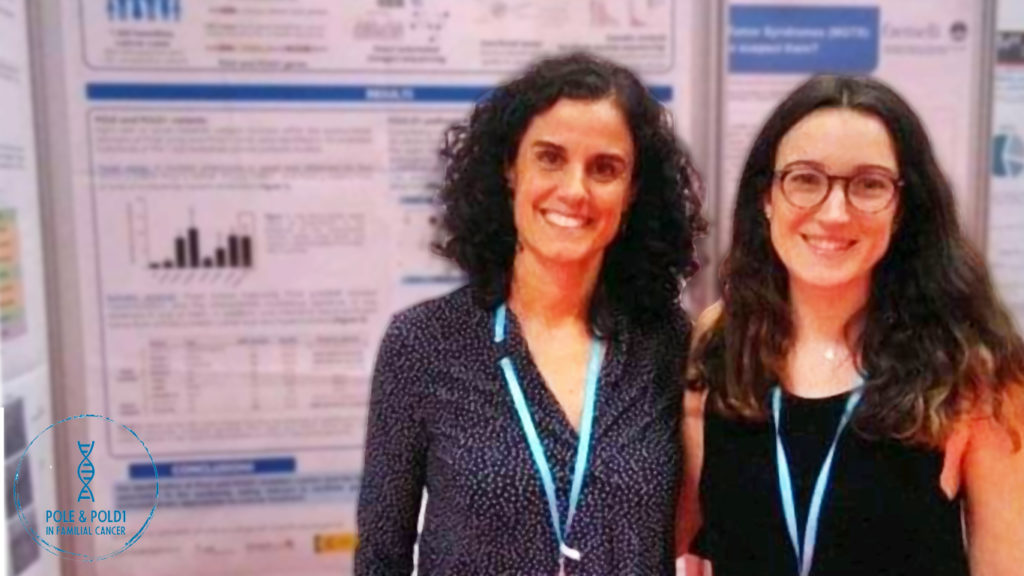Some DNA polymerases, the enzymes that replicate the DNA, have a region that corrects the mistakes that the enzyme makes when it copies the genome. When this proofreading region is affected, specifically in the polymerases called POLE and POLD1, the risk of cancer is greatly increased, especially of colorectal cancer. This is because the defective repair leads to the accumulation of mutations, and in some tissues, that can cause the development of a tumor.
Since the description in 2013 that mutations that affect the proofreading activity of POLE and POLD1 could promote the development of colorectal tumors, several families with aggregation of colon cancer and polyposis with this type of mutations have been described. However, the prevalence of these mutations and the involvement in other tissues was still unknown.
A team from the Bellvitge Biomedical Research Institute (IDIBELL), the Catalan Institute of Oncology (ICO) and CIBERONC, led by Dr. Laura Valle and Dr. Conxi Lázaro, has studied more than 2,800 patients with familial cancer to determine the actual prevalence of mutations in POLE and POLD1..
The results, published in the journal Genetics in Medicine, the official journal of the American College of Medical Genetics and Genomics (ACMG), showed that between 0.1 and 0.4% of familial cancers are due to mutations in the exonuclease domains of POLE and POLD1. Despite colorectal tumors being the most abundant, these mutations also predispose to other tumor types, such as endometrial or ovarian cancer. Although it is a rare syndrome, the risk of cancer in mutation carriers is very high.
“ the unequivocal definition of the pathogenic effect of a variant is crucial for the clinical follow-up of carriers, based on their high risk to develop cancer” Laura Valle
In addition to the evaluation of the prevalence in familial cancer, the detailed analysis of POLE and POLD1 gene variants allowed the authors to define specific criteria to classify these variants. With these criteria, POLE and POLD1 genes variants can precisely be classified as pathogenic, non-pathogenic (benign), or not defined yet. Dr. Laura Valle assures that “these recommendations for variant classification will have a relevant impact in the clinics”, since “ the unequivocal definition of the pathogenic effect of a variant is crucial for the clinical follow-up of carriers, based on their high risk to develop cancer”. On the other hand, tumors with mutations affecting the proofreading activity of POLE or POLD1, are good candidates for immunotherapy, therefore, defining whether the identified variant is pathogenic or not will be useful to choose a specific treatment.
A teamwork
Multi-gene panel sequencing, which includes those genes known to increase the risk of cancer, is the approach currently taken for genetic diagnosis of patients with a suspected familial cancer. In this study, the information of POLE and POLD1 sequencing was obtained from the panels studied in more than 2,800 patients with suspected hereditary cancer. This analysis was carried out at the Molecular Diagnostic Unit of the ICO Hereditary Cancer Program (Conxi Lázaro), where patients from the ICO centers from Catalonia, as well as patients from other hospitals, including Vall d’Hebrón-Institut d’Oncologia (VHIO), Hospital de la Santa Creu i Sant Pau, Hospital Universitari Parc Taulí, Consorci Sanitari de Terrassa and Althaia-Manresa, were studied.
In addition to the members of the IDIBELL-ICO Hereditary Cancer Group, researchers and clinicians from other groups of these centers have also collaborated, including members of the Oncology Data Analytics Program (Dr. Rebeca Sanz-Pamplona and Dr. Victor Moreno) and the Oncology Department (Dr. Josep M. Piulats). Other collaborators were Dr. August Vidal and Dr. Xavier Matías-Guiu, from the Pathology Department of Bellvitge University Hospital, members of the group of Dr. Rosa Aligué from the Faculty of Medicine of the University of Barcelona (UB), IDIBAPS, and Dr. Tirso Pons, from the Department of Immunology and Oncology of the National Center for Biotechnology (CNB-CSIC).

